Prominent voices from within the autism community – together with health officials and medical experts – have warned that President Trump’s claims about autism are “really dangerous” and could have a significant negative impact.
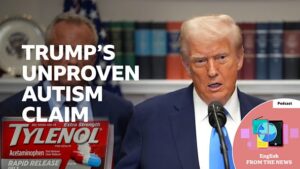
Speaking from the White House on Monday, where he was accompanied by his Health Secretary Robert F Kennedy Jr, President Trump claimed there was a link between paracetamol and autism.
The US President said that women taking Tylenol, as it is widely known in the States, during pregnancy was a potential risk factor for their child developing autism. He suggested a link between the “meteoric rise” in autism diagnoses and the use of paracetamol in pregnancy and even went as far as to assert that doctors would soon be advised that they should not recommend the medication to pregnant women.
Trump’s claims have understandably sparked outrage, disbelief and upset across communities, and have been widely debunked and branded as “misinformation” by leading medical figures.
‘Dangerous’ claims risk changing the narrative around autism
 Some prominent content creators with autism spoke to Sky News after the claims went viral, sharing their fears that Trump’s suggestion was “really dangerous for the autism community.”
Some prominent content creators with autism spoke to Sky News after the claims went viral, sharing their fears that Trump’s suggestion was “really dangerous for the autism community.”
Chelsea Webster, a prominent voice on TikTok, founded the online Autism Support Group.
She told Sky News that she fears Trump is actively changing the narrative around autism from supporting individuals to preventing diagnosis. This could mean that research, awareness and advocacy efforts shift focus from improving the lives of people with autism who need help, to establishing ‘causes’ and trying to prevent future cases.
She explained:
“What this actually does is it raises political opinion above science and data, which is really dangerous because it undermines peer-backed science and data.
“And we don’t want that because that spreads misinformation, which is really dangerous for the autism community.”
She added that studies connecting paracetamol use during pregnancy with autism in babies show “a correlation, not a causation,” and cautioned that “the fact that we let political leaders say things willy-nilly, unaccountably, without there being sort of fact-based dissection of that is really harmful.”
Chelsea said the spread of misinformation about autism could make people “vulnerable to things like wack cures or preventative methods that are unproven.”
Charity says Trump claims “devalue” autistic people
Her fears were echoed by content creator, activist and author Ellie Middleton, who has autism and ADHD. Ellie expressed these concerns very strongly, warning that the discourse around Trump’s autism claims amounted to “very thinly veiled eugenics ideology.”
Ellie explains:
“We’re hearing phrases like, ‘we need to eradicate autism,’ but you can’t eradicate autism without eradicating autistic people. It’s not something that can be separated. I can’t have my autism taken out of me and fixed, it’s part of who I am and the way that I think, feel, process, exist.
“We need to be really careful of where this sort of ideology and rhetoric leads.”
 She also expressed frustration and concern that such misinformation coming from the most powerful man in the world “pushes back all the hard work that so many of us in the autistic community are doing to beat stigma and change people’s perceptions.”
She also expressed frustration and concern that such misinformation coming from the most powerful man in the world “pushes back all the hard work that so many of us in the autistic community are doing to beat stigma and change people’s perceptions.”
The National Autistic Society also branded Trump’s statement as “dangerous, it’s anti-science and it’s irresponsible.”
Mel Merritt, Head of Policy and Campaigns at the leading UK charity, also said:
“President Donald Trump is peddling the worst myths of recent decades. Such dangerous pseudo-science is putting pregnant women and children at risk and devaluing autistic people.
“Let’s be clear – painkillers do not cause autism and vaccines do not cause autism. Large-scale studies have shown that there is no robust, scientific evidence to support this claim. It’s nothing more than fearmongering.
“The incessant misinformation about autism from President Trump and Robert F Kennedy Jr risks undermining decades of research by respected experts in the field.
“Understandably, autistic people will be dismayed and frightened by this announcement, and we would urge our Government and the NHS to stand by autistic people and to condemn this misinformation. To do otherwise risks creating further fear, stigmatisation and harm.
“We urge anyone looking for information about autism to visit websites from trusted organisations such as the NHS and the National Autistic Society.”
Autism community needs leaders to listen more
Calling for autistic voices to be better listened to, Ellie Middleton urged:
“Instead of looking for a cause or trying to eradicate autism, it would be much more useful for time, energy and resources to go into actually speaking to autistic people and the people closest to them.”
 Chelsea Webster agreed that what the autism community really needs “is for leaders to look at the actual problems and what autistic people are saying about them and then fix those problems.”
Chelsea Webster agreed that what the autism community really needs “is for leaders to look at the actual problems and what autistic people are saying about them and then fix those problems.”
She highlighted issues such as long waiting lists for autism diagnosis and autism services being shuttered in more remote areas.
She also accused President Trump of using autism as a “tactic” to pull focus away from the war in Gaza, climate change, wealth inequalities and health disparities.
Paula McGowan OBE responded to Trump’s claims on LinkedIn yesterday (Tuesday 23rd September), posting simply:
“This is the same man who encouraged people to inject bleach to cure covid.
“Autism is a neurodifference, it is not something that is broken. Autism does NOT need to be fixed, SOCIETY and ACCEPTANCE does.”
Paula McGowan is an advocate and campaigner for the autism and learning disability communities. She helped to change the law around autism and learning disability training for healthcare professionals and worked with NHS England to develop the Oliver McGowan Mandatory Training Framework on Learning Disability and Autism.
The landmark training programme is named after her son, Oliver, who died aged 18 when medical staff failed to understand his autism and did not listen to his input about his care.
The aim of the statutory training, which is co-delivered by experts with lived experience of autism and learning disabilities, is to ensure that the voices of those being treated are heard and respected, and their experiences and needs are understood.
The spreading of misinformation about autism risks undermining these aims, and increasing misunderstanding and misconceptions of autism.
Health Secretary rejects autism claims
However, Health Secretary Wes Streeting has also spoken out to strongly refute Trump’s claims about the link between autism and paracetamol, telling pregnant women not to pay “any attention whatsoever” to the US President.
He said: “I trust doctors over President Trump, frankly, on this.”
Speaking to ITV’s Lorraine he was unequivocal in his rejection of the claims:
“I’ve just got to be really clear about this: there is no evidence to link the use of paracetamol by pregnant women to autism in their children. None.
“In fact, a major study was done back in 2024 in Sweden, involving 2.4 million children, and it did not uphold those claims.
“So I would just say to people watching, don’t pay any attention whatsoever to what Donald Trump says about medicine. In fact, don’t even take my word for it as a politician – listen to British doctors, British scientists, the NHS.”
Indeed, many healthcare professionals have publicly spoken out about the lack of credibility behind Trump’s statement.
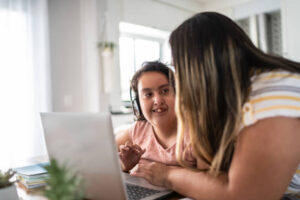 Dr Nighat Arif, an NHS and Private GP and women’s health advocate who often appears on ITV’s This Morning to discuss health issues, posted on social media to debunk President Trump’s claims.
Dr Nighat Arif, an NHS and Private GP and women’s health advocate who often appears on ITV’s This Morning to discuss health issues, posted on social media to debunk President Trump’s claims.
Expressing frustration that the US President “can share health information without robust data or research,” she highlighted a number of medical studies which found no link between paracetamol use in pregnancy and autism in babies.
Her Instagram post clearly states “what we are being told is misinformation” and suggests that moves to deny pain relief to pregnant women “is another example of misogyny when Trump’s administration has actively defunded research into women’s health care and reproductive healthcare […].”
She also stated that “autism is not a disease” and argued that the focus should be on supporting people to live a life that celebrates their strengths and supports them to overcome or manage their challenges.
Debunking Trump’s autism claims
President Trump made a number of claims in his statement from the White House on Monday, even quoting some erroneous statistics.
BBC factcheckers have delved into these statistics and claims to debunk the myths being spread by Trump and highlight the medical facts:
- Has there been a “meteoric rise” in US autism diagnoses? – Trump claimed that incidence of autism in the US had risen from around “one in 10,000 […] probably 18 years ago,” to “one in 31” by 2025. Data from the US’ Centers for Disease Control and Prevention (CDC) in 2022 did find that around 1 in 31 children aged 8 had a diagnosis of autism across 16 US states. But, in 2006 (19 years ago), this figure was 1 in 110, and in 2008 it was 1 in 88. Experts suggest rising rates of autism diagnoses can be largely attributed to changes in how the condition is diagnosed, along with greater awareness and recognition of the condition, with more people coming forward to be tested.
- Is there a problem with the MMR vaccine? – Trump also claimed that the mumps, measles and rubella (MMR) vaccine could present a problem, suggesting the vaccinations should be administered separately rather than as a combined shot. Health officials are concerned that this could deter parents from getting their children vaccinated, which could result in a re-emergence of deadly diseases like measles. Separating the shots increases the chances of children not receiving all doses and in them contracting diseases between shots. The idea that childhood vaccines are linked to autism has been widely discredited since it first came to prominence in a paper published in the medical journal The Lancet in 1998. The paper itself did not actually prove a link, and British doctor Andrew Wakefield who authored the paper was found to have financial conflicts of interest and the UK General Medical Council (GMC) found that he falsified his results. The paper has since been retracted and Wakefield was struck off by the GMC in 2010. Yet, the damage was done and the belief that childhood vaccines are linked to autism persists, even though multiple studies since have found absolutely no link between the MMR vaccine and autism. Trump has been criticised for aligning with anti-vaccine rhetoric in the absence of any evidence and at a time when cases of measles are rising in the US, with three people having died from the disease so far this year.
- Do Amish communities have lower rates of autism? – Trump claimed that Amish communities – who typically live in remote areas and reject many features of modern life, including modern pharmaceuticals – have “virtually no autism.” He suggested that minimal use of Tylenol among these communities was linked to a lower rate of autism. Evidence is scarce here because there are relatively few studies examining autism within the Amish community. Most children are diagnosed at school, but many Amish children tend to leave mainstream education after eighth grade, when they are around 14 years old. Experts suggest that reported numbers may be lower in Amish communities because Amish people may be less likely to seek an autism diagnosis. Eva Loth, Professor of Cognitive Neuroscience at King’s College London University, told the BBC factcheckers that “there are a number of reasons why reported numbers may be low, but that doesn’t mean that no cases exist.”
- Are there lower levels of autism in Cuba? – Trump went on to make a similar claim about incidence of autism in Cuba. He linked limited availability of Tylenol on the island to low levels of autism diagnosis. However, factcheckers were unable to identify any official statistics from Cuba relating to autism and the World Health Organization (WHO) clearly states that the “prevalence of autism in many low and middle-income countries is unknown.” Once again, this assertion from President Trump does not appear to be evidence-based.
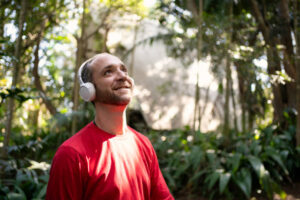 Ultimately, it must be remembered that autism and other neurodifferences are not diseases. Neurodiversity is the natural variation in our brains and behaviours. We all vary in how we think, learn and process information. Neurodiversity is an umbrella term that covers many different experiences, including autism.
Ultimately, it must be remembered that autism and other neurodifferences are not diseases. Neurodiversity is the natural variation in our brains and behaviours. We all vary in how we think, learn and process information. Neurodiversity is an umbrella term that covers many different experiences, including autism.
When thinking about autism and other neurodiversities, the focus should always be on support, understanding, celebration and inclusion.
Oliver McGowan Mandatory Training
First Response Training (FRT) was one of the first training providers in the country to be approved to offer essential training in line with the Oliver McGowan Mandatory Training on Learning Disability and Autism. They are quality assured to deliver Oliver’s Training through the Quality Assured Care Learning Service from the Department of Health and Social Care and Skills for Care.
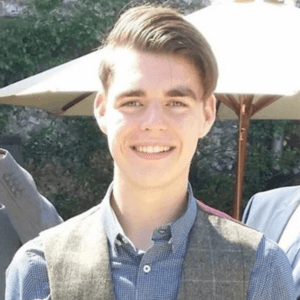 The national training provider aims to empower and educate staff to transform their practice by embracing the lived experiences of autistic individuals and those with learning disabilities. Through the collaborative strength of their trios—facilitating trainers and experts with lived experience — FRT aims to inspire lasting change in how individuals are understood, supported, and valued.
The national training provider aims to empower and educate staff to transform their practice by embracing the lived experiences of autistic individuals and those with learning disabilities. Through the collaborative strength of their trios—facilitating trainers and experts with lived experience — FRT aims to inspire lasting change in how individuals are understood, supported, and valued.
If you want to learn more about the Oliver McGowan Mandatory Training Framework, you can book a free consultation with their Project Lead, Perry Leeks, to find out all about the programme and how FRT can address the needs of your organisation and staff.
FRT are hosting a series of open, public Tier 2 courses in London, Manchester and Birmingham in the coming months. You can book a space on any of these courses online now. They also offer open Tier 1 webinar sessions.
FRT have also developed a free-to-download quick guide to the new Oliver McGowan draft code of practice.
This guide explains what the new code of practice means for health and social care providers, how to stay current, and how to meet new legal duties.
You can also download FRT’s free Oliver McGowan Mandatory Training brochure.
Providing an alternative training solution
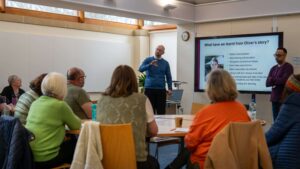 To offer health and care providers flexibility and choice, FRT have also developed their own Tier 2 Mandatory Autism and Learning Disabilities Training package.
To offer health and care providers flexibility and choice, FRT have also developed their own Tier 2 Mandatory Autism and Learning Disabilities Training package.
Fully mapped to the core capabilities framework, Oliver McGowan Mandatory Training Code of Practice and externally accredited, this package offers providers an efficient, affordable alternative solution.
Please note that, while fully interactive, this webinar-based training solution does not meet the code of practice’s requirement for the training to be ‘face-to-face’.
The training is designed to meet statutory standards and equip health and social care staff to deliver more empathetic, person-centred support.
A trainer at FRT explains:
“This isn’t just about compliance. It’s a chance to improve outcomes, reduce bias, and truly understand the lived realities of autistic individuals and people with learning disabilities, helping to improve care and support and prevent avoidable deaths.”
You can learn more about how FRT developed this training package here.
For further information on other types of neurodiversity training, visit their webpage or download the brochure.
You can contact FRT via freephone 0800 310 2300, send an e-mail to info@firstresponsetraining.com or submit an online enquiry.
